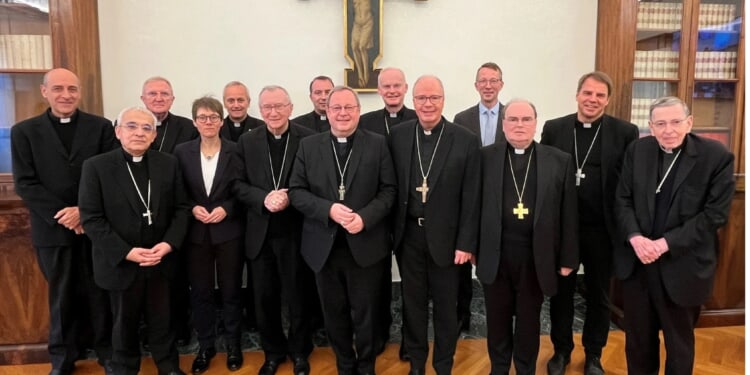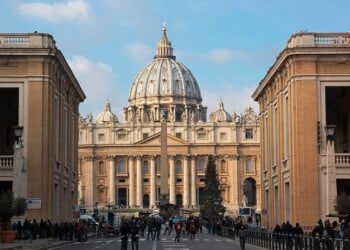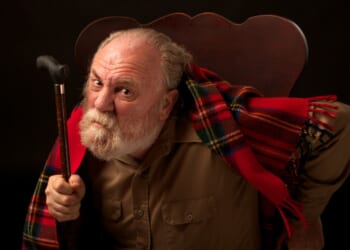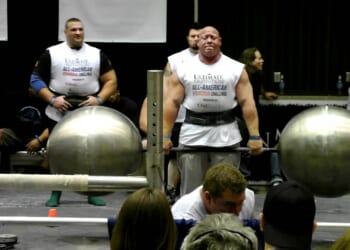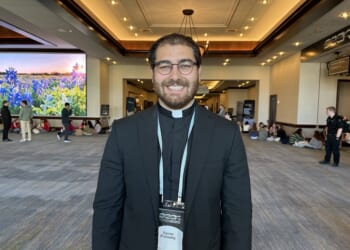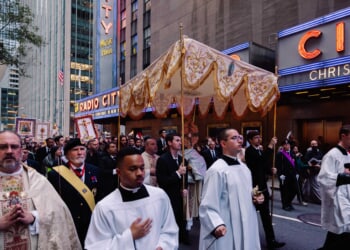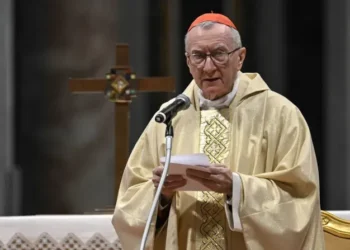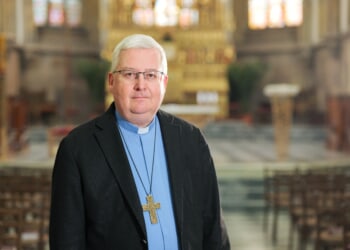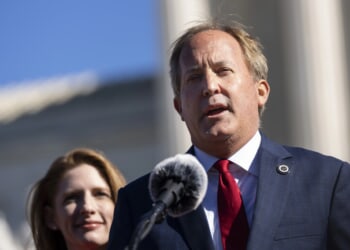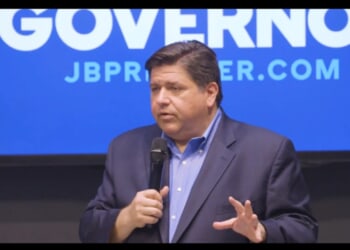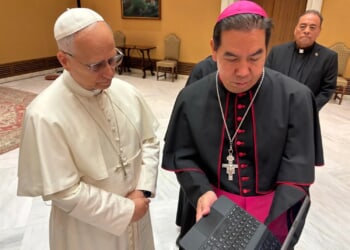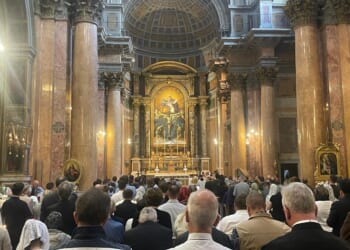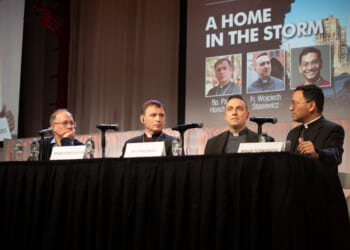EWTN News, Nov 13, 2025 /
09:00 am
Representatives of the Roman Curia and the German bishops’ conference met on Wednesday to continue discussions on the proposed statute of a “synodal conference” for the Church in Germany, marking the fourth such dialogue since talks began in 2022.
The meeting, held in Rome on Nov. 12, took place in what a joint press statement described as an “honest, open, and constructive atmosphere,” with both sides discussing various aspects of the planned synodal body’s character, composition, and competencies.
No further details of the encounter were shared.
The proposed conference concept represents the latest iteration of plans to establish a permanent body in Germany in the wake of the controversial Synodal Way, following repeated interventions by Pope Francis and the Vatican.
The now-proposed German “synodal conference” was previously touted as a permanent synodal council, but both the name and statutes were changed last year following discussions in Rome that led to assurances both sides wanted to “change the name and various aspects of the previous draft” for the body.
Both sides also announced last year that the synodal council would not be “above or equal to the bishops’ conference.”
The meeting on Wednesday continued the series of encounters that previously took place in July 2023, March 2024, and June 2024.
Bavarian bishop as ‘guest’
Vatican representatives on Wednesday included Cardinal Pietro Parolin, secretary of state; Cardinal Víctor Manuel Fernández, prefect of the Dicastery for the Doctrine of the Faith; Cardinal Kurt Koch, prefect of the Dicastery for Promoting Christian Unity; and Cardinal Arthur Roche, prefect of the Dicastery for Divine Worship and the Discipline of the Sacraments.
The German delegation was led by Bishop Georg Bätzing of Limburg, president of the German bishops’ conference, along with Bishop Helmut Dieser of Aachen, Auxiliary Bishop Ansgar Puff of Cologne, and Bishop Stefan Oster of Passau, who participated as a guest.
Oster’s presence as “guest” is particularly noteworthy, as the Bavarian prelate has been an outspoken critic of the German Synodal Way and has distanced himself from the controversial plans.

